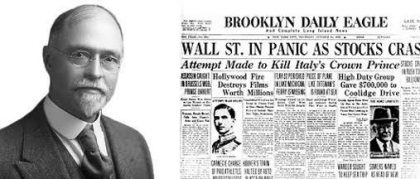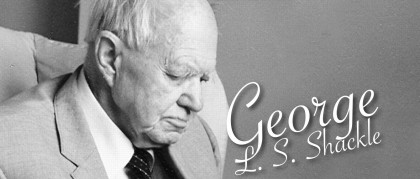-
- 06 Jul
Pareto and the 80/20 Rule
- Jul 06, 2016
- IanRunge
- 0
- 80/20 Rule, Economists, Pareto Principle
Vilfredo Pareto (1848-1923) was a famous Italian economist who, amongst other things, derived some interesting relationships between income levels and the number of people who received more than that income.� Anecdotal evidence credits Pareto with the original recognition that 80% […]
Read more -
- 05 Jul
DCF’s and NPV’s … Thank Irving Fisher!
- Jul 05, 2016
- IanRunge
- 0
- Boom and Bust, Business Cycles, DCF, Economics, NPV
Irving Fisher (1867-1947) was one of the greatest and clearest-thinking economists of all time.� He established the theoretical support for modern discounted cash flow analysis, writing that �the value of capital is the present value of the flow of (net) […]
Read more -
- 22 Feb
GDP (Gross Domestic Product) � Don�t Believe it!
- Feb 22, 2016
- IanRunge
- 0
- Business Cycles, GDP, Growth, Production
GDP is gross domestic product, not net domestic product. It measures production, not destruction. In 1958, Mao Zedong launched China�s �Great Leap Forward� and amongst other initiatives, provided lots of incentives to increase steel production. Steel output rose dramatically. BUT […]
Read more -
- 22 Feb
Rational Expectations?
Economists use the term a lot � economist Robert Lucas won the Nobel Prize in 1995 largely because of his work in this field. But the term doesn�t make the mainstream business vernacular very often. Maybe it should. �Rational Expectations� […]
Read more -
- 22 Feb
Unknowledge
Unknowledge? Run that by me again? The rather enigmatic economist George L S Shackle tackled some interesting subjects in his career. One he called: unknowledge (in: the Bounds of Unknowledge (1983)). It is the problem of how do you know […]
Read more -
- 22 Feb
Interest Rates, Discount Rates, and the Net Present Value of Things
Why do we use exponential discounting to bring future valuation into the present? George Ainslie reckons that as individual decision-makers we do not discount the future according to some exponential curve, but instead apply an hyperbolic function. What this effectively […]
Read more






